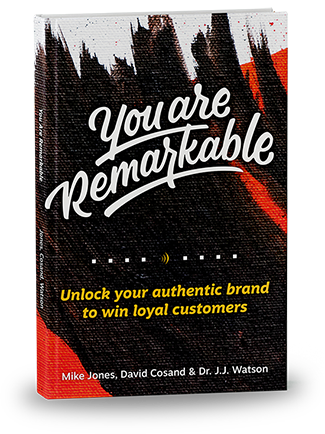Distrust poisons everything. When people are scared to question, because they can’t trust the response, problems hide under layers of bureaucracy. But definitions expose hypocrisy and destroy toxicity in culture. Let’s talk about how to create a commitment to reason in your organization and how it leads to excellence.
A Lack of Definition Paralyzes
Distrust cripples the staff and decision-making of the organization.
If people don’t trust you, conversations go underground. They don’t believe you’re about the truth or the mission anymore. Instead, they believe you’re out for yourself, unwilling to share your true motives. So to them, it’s no wonder when they try to contribute, they get shot down without understanding why. It’s no wonder when it came to promotions, you hired a person of a certain skin color or gender; you’re either a racist or you’re trying to signal virtue. None of these things build trust in your organization.
Not only that, but those with a predilection for politics smell blood in the water and they become your best friends. They become like the fox and the cat from Pinnochio, but with more skill and subtlety. They put their arm around you, agree with you, and then when their claws are in, they manipulate you.
But if you build objective standards that everyone is accountable to, from the bottom to the very top, people can question you on every decision. That’s a good thing because it holds you accountable. And what a gift that is to be held accountable. You’ll find that the right people stay, and the wrong people stand out quickly. And you’ve given yourself a strong foundation for a non-toxic environment that pushes toward one thing: the company’s mission.
Here are some steps.
1) Build Intention: Clear Definitions Focus Your Team
Each metric measures something meaningful and traces itself back to a plan and actions that plan indicates.
What it looks like:
- From your mission, create an annual goal that will move your mission forward. Make sure it’s measurable (you’ll know the moment/day it’s done and it has a deadline).
- From your goal, build out objectives that, if they’re met, will achieve that goal. For example, if your goal is to make 20 more sales this year than last year, your objectives might be to tighten up marketing, sales and your brand.
- Branding example: Build a trustworthy brand by defining our values and personality traits clearly, giving sales and marketing a strong name to sell from.
- Marketing example: Find the channels that are performing best and put 10% more budget into those channels. Look for a 15%-20% improvement.
- Sales example: Find out which motivations work for the sales team (maybe through research and conversations with the sales team) and find 2-3 ways to implement them. Look for that 20% improvement in sales.
- Then, ask each manager to plan out their part. If it’s a marketing person, have her talk about her part of the marketing objective and how it will support the larger goal. Then talk with her about how the plan should get executed in her role.
2) Make it Clear that You Value Root-Cause Definitions
It’s not the act of finding root causes that builds trust: it’s the organization’s willingness to find root causes. Your inability or unwillingness to find root causes will usually tell everyone around you one thing: you’re not willing. That’s when they start looking for your hidden motives. And if they can’t find one, they start guessing.
Be willing to find them. You have to be willing to talk about root causes. This builds trust and sophistication. If you don’t talk about the cause, some people won’t notice; others will see it as disingenuous. And those will often be the ones who make things work for you. The operations types. Don’t get me wrong; they’ll understand if you explain why the root cause can’t be addressed right now if it’s a good reason. But don’t wait too long to address it.
Be aggressive about prioritizing them. Once you’ve defined the problems, determine which ones are the important ones to fix now and which ones aren’t. Use Eisenhower’s urgent/important matrix to label them and then do the urgent/important ones first.
3) Strategy Defines Accountability
Everyone has ideas. And some people get really inspired by an idea. And maybe it’s a different idea every month or week. There are all kinds of good ideas, but how do you tell the differences between a fun idea and the best idea? You have to know the strategy and whether it fits.
Here’s how it goes: A clear goal can lead to clear objectives. Those objectives can frame the question: how do we get from where we are today to those objectives? And if you keep that simple, clear, and direct, you can test new ideas to see if they’re the best.
How this creates trust: People recognize hypocrisy. If you’re not logical or consistent, you’re being hypocritical. You’re saying one thing and doing another.
Politicians are good at hiding this. They make a policy they claim is supposed to accomplish one thing, but ends up doing another. There’s not a ton of accountability, and you only really get called out if you’ve fallen out of favor with the press or have done something very illegal. But it doesn’t create a culture of trust.
To build trust, define your strategy well so your staff can be participants, not just observers. This holds you accountable. And because you’ve now given a “why” to all activities — both theirs and yours — you’re able to hold them accountable in ways that matter. They know they matter and you know they matter. And that recognition is only possible if you’ve defined strategy.
Root Out Hypocrisy with Clear Definitions
Hypocrites and liars hate accountability and clarity. If you allow obscurity and vagueness in your organization, you create a back-stabbing bureaucracy, ready for failure. If you lose your ability to measure clearly, you’re likely to default to emotion and the political flavor of the day. But if you keep clear objectives, make clear strategies, and insist that everyone contribute to the open, shared goals, you’re setting yourself up to fight for your mission without distraction.



